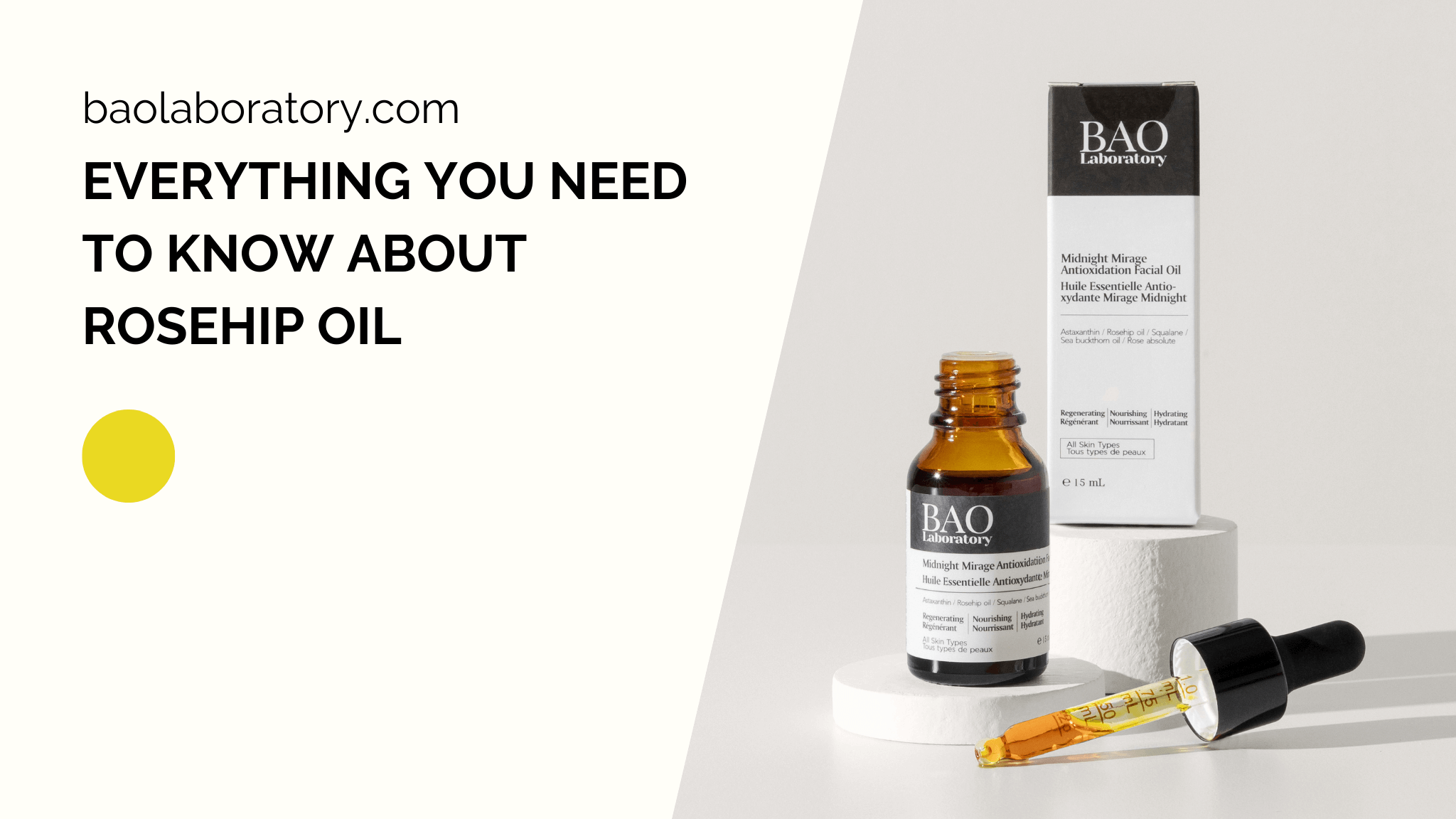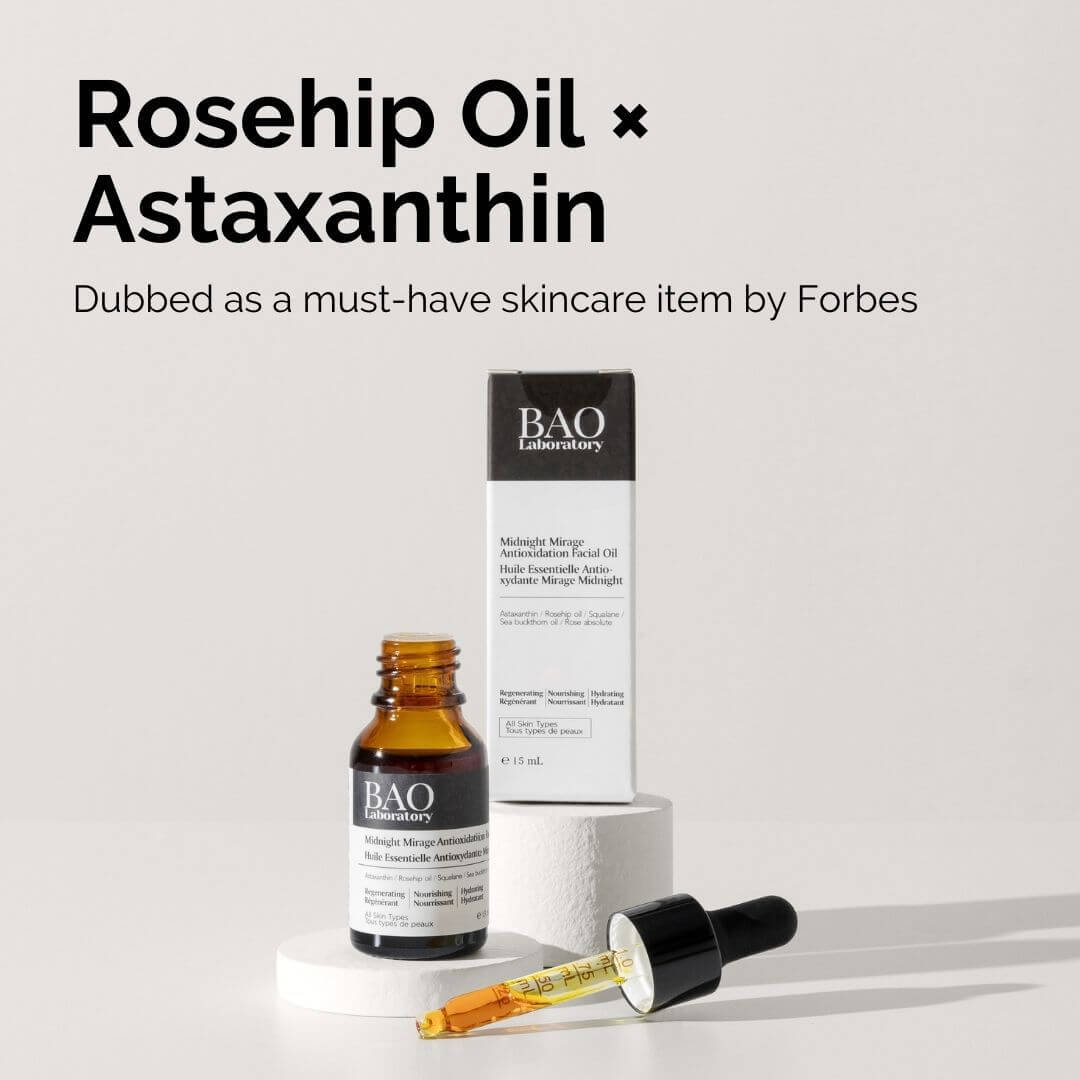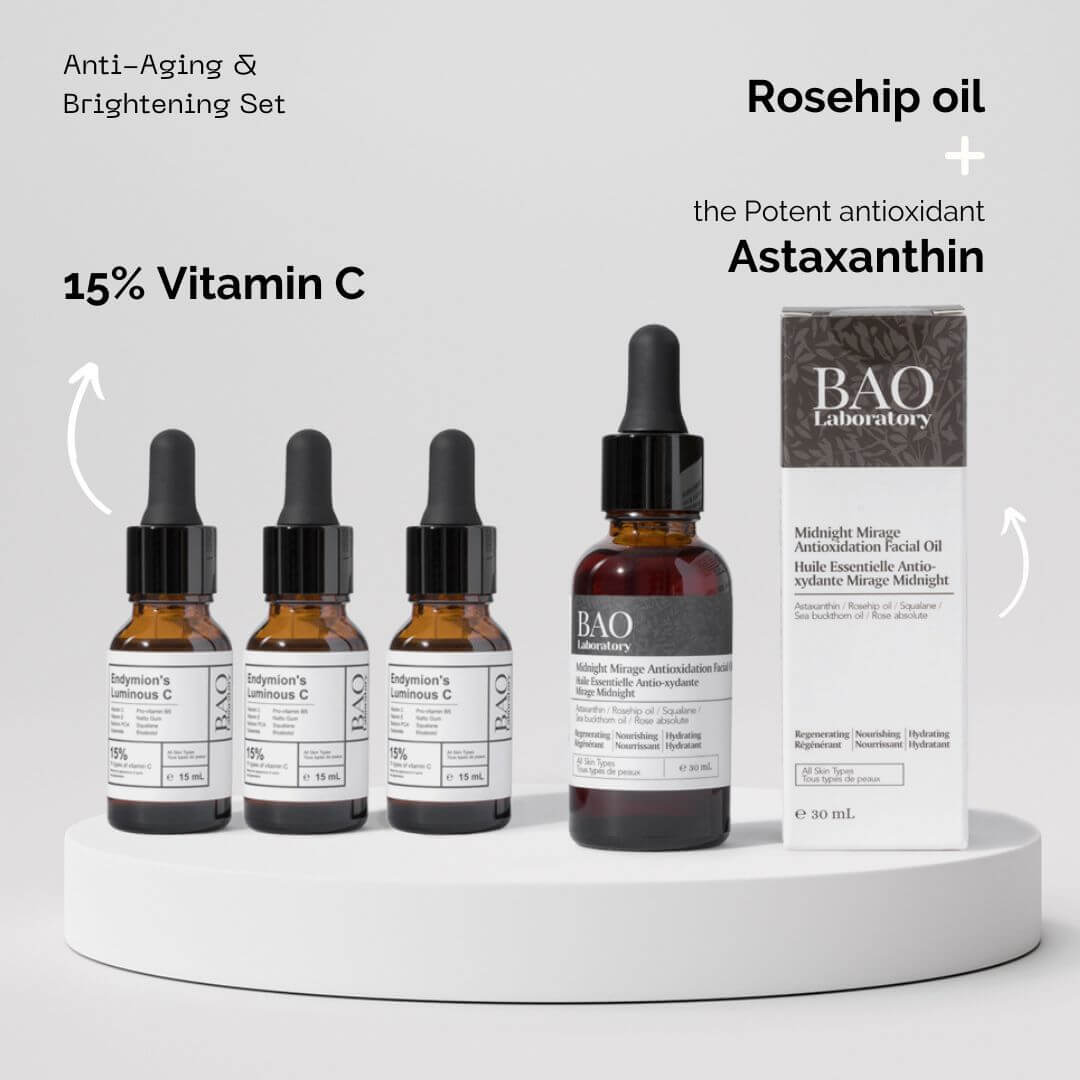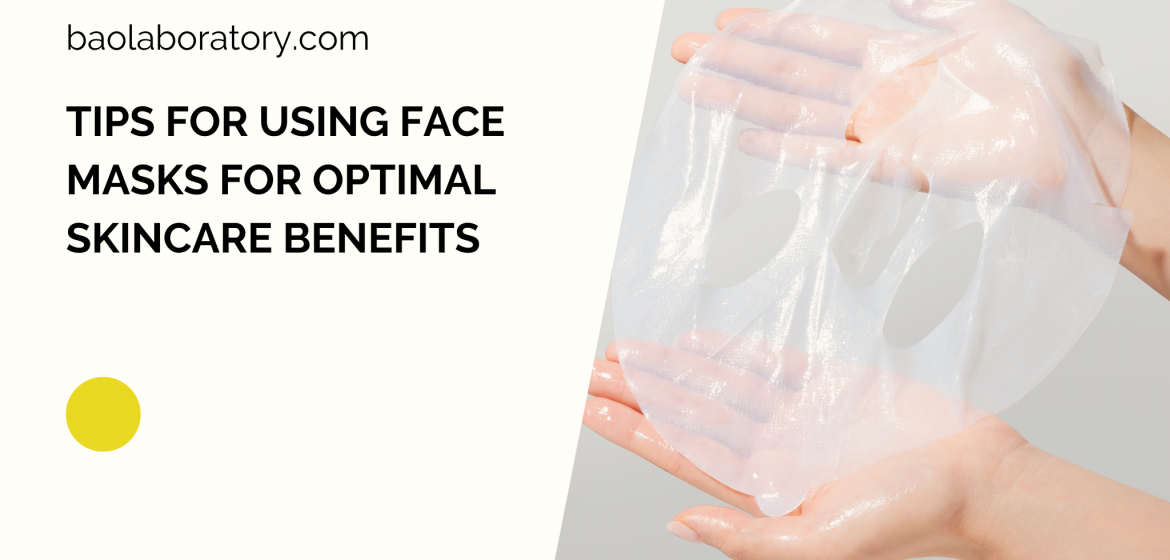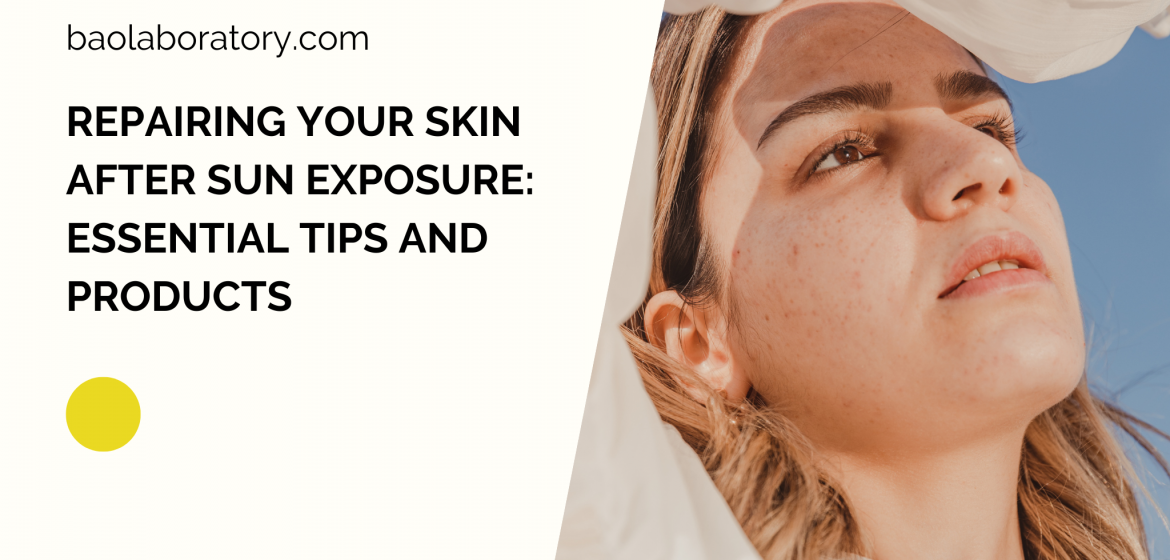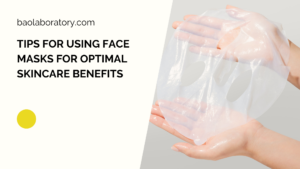
- Home
- /
- Brand Awareness
- /
- Everything You Need To Know About Rosehip Oil
Rosehip oil is a natural oil derived from the seeds of the Rosa canina plant. This plant is native to Europe, Africa, and parts of Asia, and it is renowned for its health benefits. The oil extracted from its seeds is rich in essential fatty acids, vitamins, and antioxidants, which make it a popular ingredient in skincare and haircare products.
Rosehip oil is made through a process of cold-pressing the seeds of the Rosa canina plant, which extracts the oil without the use of heat or chemicals. This method helps to preserve the oil’s natural composition and ensure that it is free from impurities. The resulting oil has a bright orange or reddish color and a distinct nutty scent.
The main active ingredients in rosehip oil are linoleic acid and alpha-linolenic acid, which are both essential fatty acids that play a crucial role in maintaining healthy skin and hair. These fatty acids help to strengthen the skin’s barrier function, which helps to lock in moisture and prevent dryness and irritation. They also have anti-inflammatory properties, which can help to soothe and calm the skin.
Rich in Antioxidants
Rosehip oil is also rich in antioxidants, such as vitamins A and C, which help to protect the skin against free radical damage caused by environmental stressors like pollution and UV radiation. These antioxidants also help to stimulate collagen production, which can help to reduce the appearance of fine lines and wrinkles and improve skin firmness and elasticity.
Rosehip oil can be used in skincare products like serums, moisturizers, and facial oils. It is also used in haircare products like conditioners and hair oils, as it can help to nourish and strengthen the hair and scalp. Some people also use rosehip oil as a natural remedy for skin conditions like eczema and psoriasis, as it can help to soothe inflammation and promote healing.
Here are some of the ways in which rosehip oil can benefit your face:
Moisturizes the skin
Rosehip oil is rich in essential fatty acids that help to nourish and moisturize the skin. These fatty acids help to reinforce the skin barrier, preventing moisture loss and keeping the skin hydrated and supple.
Brightens the complexion
Rosehip oil contains high levels of vitamin C, which has been shown to have brightening effects on the skin. Vitamin C can help to even out skin tone and reduce the appearance of dark spots and hyperpigmentation.
Reduces the appearance of fine lines and wrinkles
Rosehip oil is also rich in vitamin A, which is a natural retinoid. Retinoids are known for their anti-aging benefits, as they can help to reduce the appearance of fine lines and wrinkles, improve skin texture, and promote collagen production.
Soothes inflammation
Rosehip oil contains anti-inflammatory compounds that can help to calm redness, irritation, and inflammation in the skin. This makes it a useful ingredient for those with sensitive or reactive skin.
Promotes skin regeneration
Rosehip oil contains antioxidants like vitamin C and beta-carotene, which can help to protect the skin from free radical damage and promote skin regeneration. This can help to improve the overall health and appearance of the skin.
Is rosehip oil non-comedogenic?
Rosehip oil is considered to be non-comedogenic, which means that it is unlikely to clog pores and cause acne breakouts. This is because the oil is lightweight and easily absorbed by the skin, and it does not contain any heavy or pore-clogging ingredients.
However, it is important to note that everyone’s skin is different, and some people may still experience breakouts or irritation when using rosehip oil. If you have very sensitive or acne-prone skin, it may be best to patch test the oil on a small area of your skin first to see how your skin reacts. Additionally, it is always a good idea to consult with a dermatologist if you have any concerns about using a new skincare product.
How to use it?
Rosehip oil can be used in a variety of ways on the skin, depending on your skin type and specific skincare concerns. Here are some common ways to use rosehip oil on the skin:
Moisturizer: Rosehip oil can be used as a lightweight, hydrating moisturizer for all skin types. Simply apply a few drops of the oil to your face and neck after cleansing and toning, and gently massage it into your skin until it is fully absorbed. You can also mix a few drops of rosehip oil into your favorite moisturizer for added hydration and nourishment.
Serum: Rosehip oil can be used as a serum to target specific skincare concerns, such as fine lines, wrinkles, and dark spots. Apply a few drops of the oil to your face and neck after cleansing and toning, and gently press it into your skin until it is fully absorbed. Follow up with your favorite moisturizer.
Eye Serum: Rosehip oil can be used as an eye serum to help reduce the appearance of fine lines and dark circles around the eyes. Apply a small amount of the oil to your under-eye area using your ring finger, and gently tap it into your skin until it is fully absorbed. Be careful not to get the oil in your eyes.
Face mask: Rosehip oil can be used as a key ingredient in a DIY face mask to help soothe and hydrate the skin. Mix a few drops of the oil with other nourishing ingredients such as honey, avocado, or yogurt, and apply the mixture to your face. Leave the mask on for 10-15 minutes, then rinse it off with warm water.
Body oil: Rosehip oil can also be used as a nourishing body oil to help hydrate and soften the skin. Apply a few drops of the oil to your arms, legs, and other areas of your body that need extra hydration, and gently massage it into your skin until it is fully absorbed.

